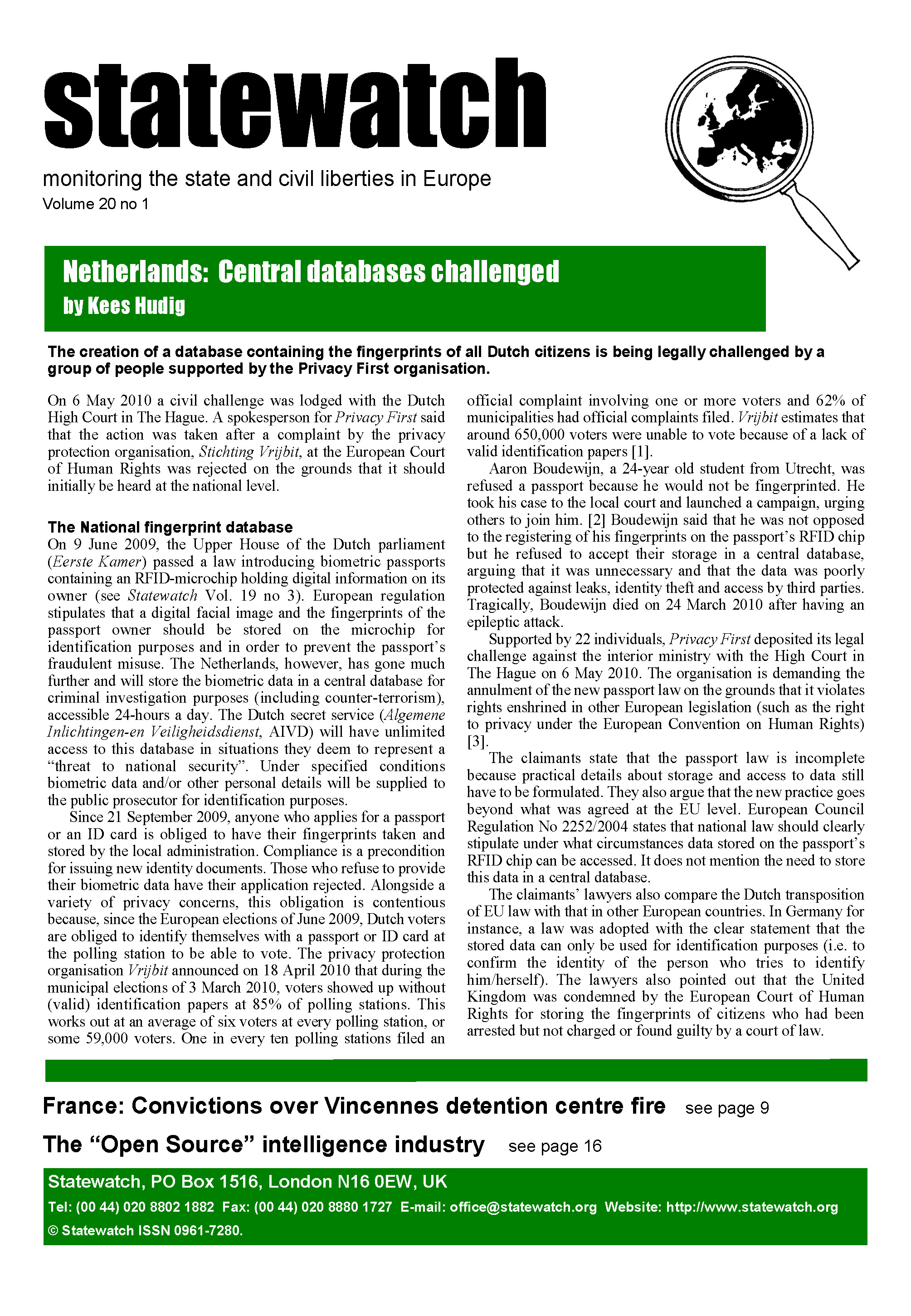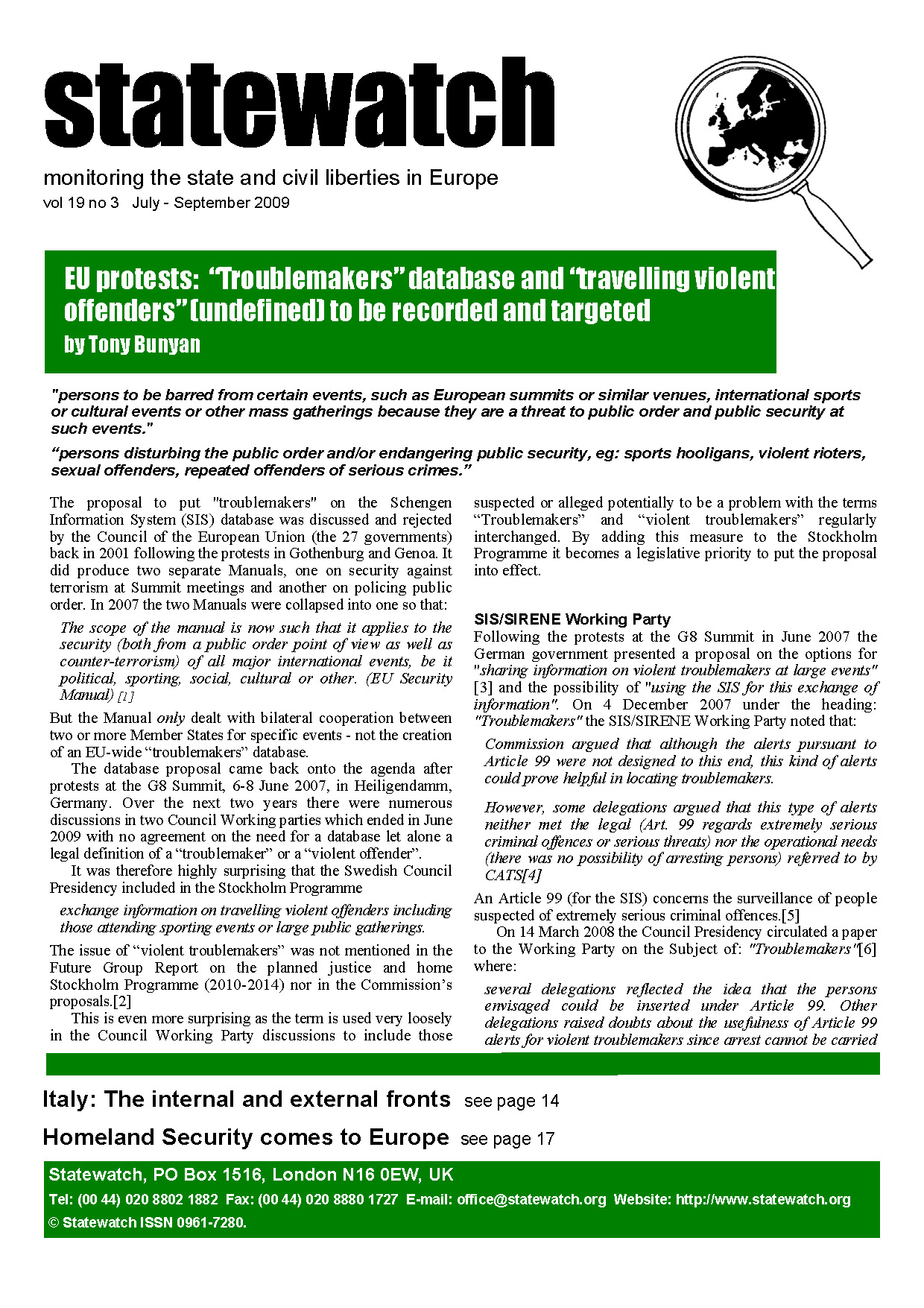Vol 19 (4): DNA retention in the UK; abuse in Italian prisons; children in detention; EU decision-making process
Topic
Country/Region
31 December 2009
Cover story: UK government's "clumsy, indiscriminate and disproportionate" approach to DNA retention
Support our work: become a Friend of Statewatch from as little as £1/€1 per month.
Download the journal in pdf format
UK Government’s “clumsy, indiscriminate and disproportionate” approach to DNA retention by Max Rowlands
The UK government intends to keep innocent people on the national DNA database for six years despite the European Court of Human Rights having ruled the practice to be unlawful.
GERMANY: The Federal Republic’s security services from the Cold War to the “new security architecture” by Norbet Pütter
With the end of the Cold War, the (West) German security services lost their central surveillance target and thereby their legitimacy. The crisis was brief and new roles were swiftly found. More so than ever before, the intelligence agencies became interlinked with other security authorities.
ITALY: Shocking death spotlights prisoners’ plight by Yasha Maccanico
The case of Stefano Cucchi, who died in hospital after being beaten in police custody, highlights the routine abuses that occur in Italian prisons and police stations and the lack of accountability of those responsible.
Unisys Corp: A spider in the web of high-tech security by Eric Töpfer
This article details the growth and operational practices of the Unisys Corporation, a key player in the global "Homeland Security" market.
UK: Yarl’s Wood “No place for a child”: New hunger strike over conditions at immigration detention centre by Trevor Hemmings
Each year an estimated 2,000 children are held in immigration detention centres for administrative purposes, an experience the Children's Commissioner describes as "like being in prison”. Children have been separated from their parents, denied essential medical treatment, and suffered severe psychological distress.
UK: Misuse of section 44 stop and search powers continues despite European Court ruling by Max Rowlands
The police are using section 44 powers to stop and search people for reasons unrelated to terrorism. Both amateur and professional photographers are being increasingly impeded as part of a broader struggle over the control of public space.
EU decision-making after the Treaty of Lisbon: a quick guide by Steve Peers
The guide sets out the legislative and non-legislative procedures, secondary legislation, implementing powers and delegated acts, and the advisory, management and regulatory procedure with scrutiny (RPS).
* In addition, the bulletin carries a round-up of new books, reports and publications
Download the journal in pdf format
Our work is only possible with your support.
Become a Friend of Statewatch from as little as £1/€1 per month.
Spotted an error? If you've spotted a problem with this page, just click once to let us know.

